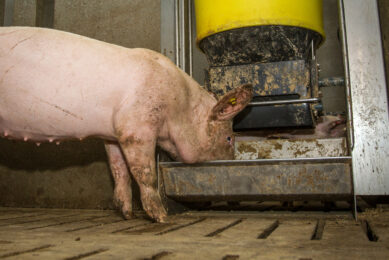Abramovich profits from Dutch aid for Russian pig farm
A massive pig farm in Russia partly owned by oil billionaire Roman Abramovich was partly paid for by Dutch development aid money, according to a report by pro-animal campaigners from the Wakker Dier foundation.
The report states Omsky Bacon, a company owned by Abramovich, one of the richest men in the world, and Dutch animal feed giant Nutreco, won a €750,000 grant to expand production at the plant from 250,000 to 500,000 pigs a year.
The grants came from a government fund named the Private Sector Investment Program which is supposed to help small and medium sized firms invest in developing countries with the aim of creating jobs, ensuring sustainable development and helping the environment.
Few jobs created
But an official report into the scheme shows PSIP creates too few jobs and there are not enough checks on the social responsibility aspects, consumer tv-show Radar said in its coverage of the report.
In addition, giant pig farms like Omsky Bacon are pricing small farmers out of the market, development aid professor Paul Hoebink of Radboudt University said in the show.
Wakker Dier also uncovered another €700,000 subsidy which helped one of the Netherlands’ biggest pig farmers to build a giant pig farm in Bosnia. The grant was given even though the owner has convictions for feeding his animals contaminated pig feed.
Against animal laws
And in Romania, €400,000 of Dutch money went to build a poultry factory farm where chickens are kept in much smaller cages than allowed by law in the Netherlands.
The funding for mega pig farms is also noteworthy because they are officially discouraged in the Netherlands.
Labour and Liberal MPs plan to raise the PSIP issue in parliament.
In a reaction, the foreign affairs ministry said all grant applications are carefully examined and have to meet strict criteria.
For example, the company must have been unable to get a bank loan, the project must be innovative and the money is a one-off contribution amounting to a maximum 50% of the initial investment.











